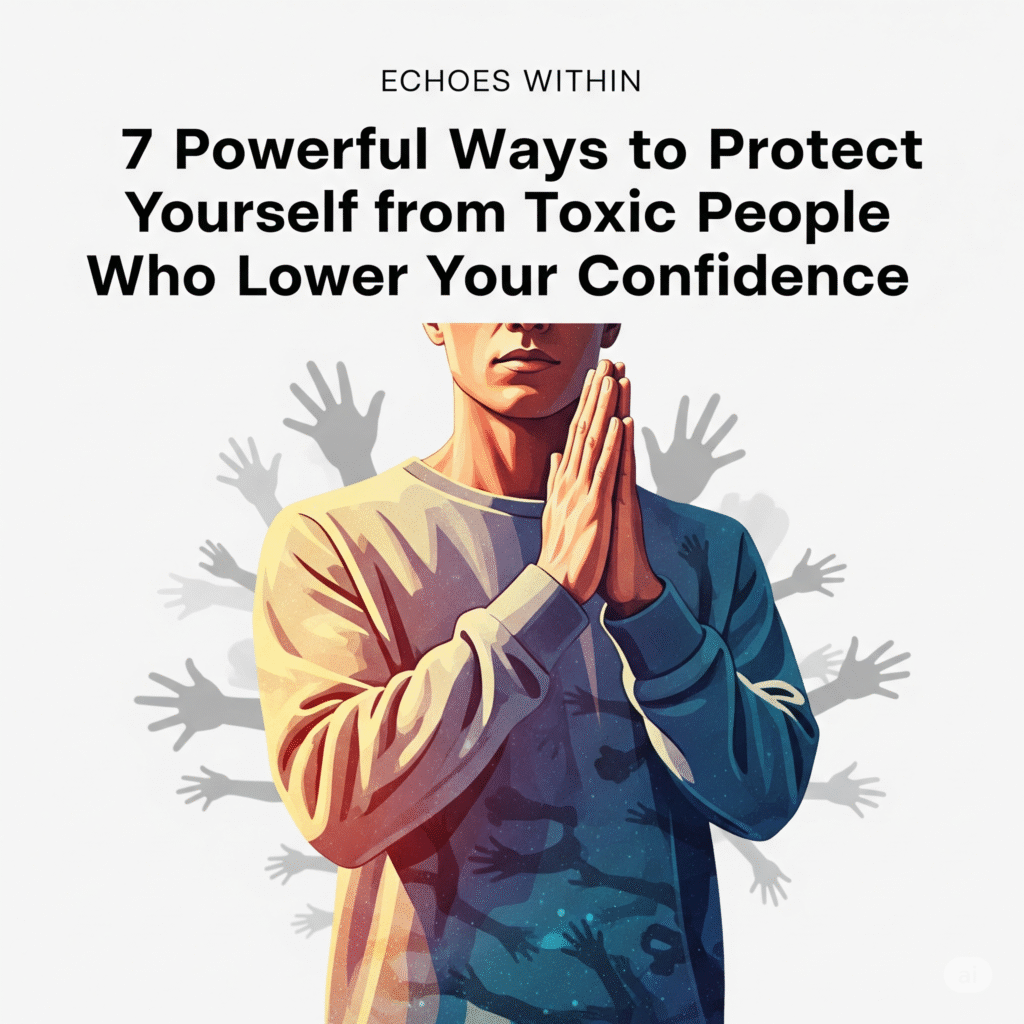Toxic People Who Lower Your Confidence
Toxic people are everywhere—at work, at home, online. They may constantly criticise, discourage your dreams, or make you feel like you’re never enough. Over time, their negativity can take a toll on your mental health and self-confidence. But here’s the good news: you can protect yourself. You can set boundaries, boost your inner strength, and choose peace over pressure.
Let’s explore seven practical and empowering strategies to safeguard your energy and confidence from toxic individuals.
1. Set Clear Emotional Boundaries
Toxic individuals often overstep personal limits. They guilt-trip, manipulate, or drain you emotionally. So, set firm boundaries. Don’t feel bad for saying:
-
“I’d rather not talk about that.”
-
“Let’s stay on positive topics.”
-
“I’m not available for this right now.”
You don’t owe anyone your time or emotional energy. The more clearly you draw the line, the more peace you’ll protect.
2. Recognise Their Patterns—And Don’t Take It Personally
Here’s the truth: their words say more about them than about you.
People who put others down often struggle with their self-worth. They criticise what they fear or envy. Instead of internalising their negativity, pause and remind yourself:
“This is not about me. I know my worth.”
This simple mental shift turns their poison into power.
3. Limit or Cut Off Contact
Yes, sometimes the best solution is distance.
You don’t need to keep toxic people in your life just because they’re coworkers, relatives, or long-time friends. You have the right to protect your peace.
-
Reduce the time you spend with them.
-
Keep interactions short and neutral.
-
If necessary, go low contact or no contact entirely.
Protecting your mental health is more important than maintaining forced relationships.
4. Surround Yourself with Uplifting People
Negativity spreads—but so does positivity.
Actively seek out people who believe in you, challenge you to grow, and celebrate your efforts. Whether online or offline, build a circle that energises you instead of draining you.
Join communities, clubs, or support groups that align with your goals and values. The more you’re surrounded by genuine support, the less power toxic voices hold.
5. Strengthen Your Inner Confidence
External discouragement only sticks when it matches our inner doubts. So, start working from the inside out.
-
Keep a journal of your achievements.
-
Practice daily affirmations like:
“I am capable. I am growing. I am enough.”
-
Learn new skills that make you feel proud and self-reliant.
Confidence is like a muscle—the more you use it, the stronger it gets.
6. Respond Calmly, Not Emotionally
Toxic people often thrive on reactions. Don’t give them that satisfaction.
When they try to provoke or belittle you, respond with calm detachment:
-
“Thanks for your input.”
-
“I’ll think about that.”
-
Or say nothing at all.
Your silence and self-control speak volumes. It shows that they no longer have control over your emotions.
7. Seek Support When You Need It
Lastly, know that it’s okay to ask for help.
Talking to a therapist or counsellor can help you process emotional damage, rebuild your self-worth, and gain professional tools to handle toxicity. You’re not weak for needing support—you’re wise for choosing healing.
Final Thoughts
Negative people can shake your confidence, but they can’t steal your power—unless you let them. By setting boundaries, building inner strength, and choosing supportive connections, you reclaim control over your emotional world.
The more you protect your peace, the more unstoppable you become.
Call to Action:
🌱 Have you dealt with someone toxic lately? What strategy helped you the most? Share your experience or tip in the comments below!
📚 You Can Also Read:
The Surprising Power of Mind-Wandering: How Daydreaming Boosts Planning and Problem-Solving
🧠 Neither extreme introversion nor extreme extroversion is inherently better.
Extreme Introversion: Thriving in a World Built for Extroverts
Voluntary Childlessness: Challenging Societal Norms
Extreme Body Modification: Pushing the Boundaries of the Human Form
📚 Reference Sources
-
Cloud, H., & Townsend, J. (1992).
📘 Boundaries: When to Say Yes, How to Say No to Take Control of Your Life
-
A foundational book on setting healthy emotional and relational boundaries.
-
American Psychological Association (APA)
🧠 Managing toxic relationships
-
Offers research-backed advice on handling difficult people and emotional boundaries.


Pingback: Personal Finance for Productivity: How Money Affects Productivity